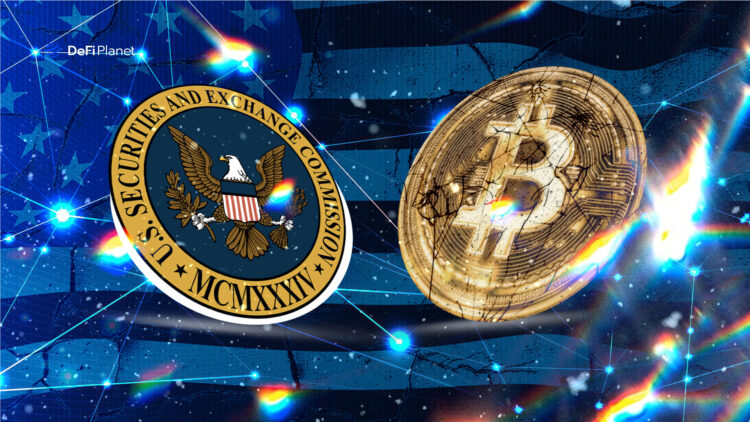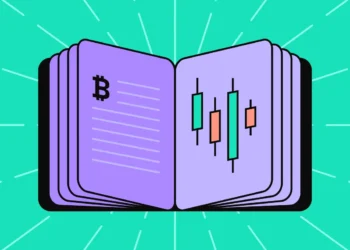
The SEC’s unyielding persecution of the crypto industry is not a new phenomenon; it can be traced all the way back to the DAO incident in 2016.
Since the DAO hack, the SEC has shown its determination to exert control over the cryptocurrency market. This decision has resulted in increased scrutiny of numerous crypto projects, and as recent lawsuits against Coinbase and Binance have shown, not even the big market players are immune.
The SEC’s actions have sent shockwaves throughout the crypto community, causing uncertainty and fear among investors and industry participants. Many argue that the SEC’s heavy-handed approach stifles innovation and hampers the growth of the crypto market. However, others believe regulations are necessary to protect investors and ensure market stability.
Regardless of contrasting opinions, it is clear that the SEC’s influence on the crypto industry is far-reaching and cannot be ignored.
This article comprehensively examines the reasons for the US SEC’s involvement in the cryptocurrency space, a timeline of the regulator’s subsequent enforcement actions, and the industry’s response.
When & How Did the SEC Become So Interested in Crypto?
The SEC’s intensified scrutiny of the cryptocurrency sector can be attributed to two pivotal incidents: the DAO hack and the downfall of FTX. These events marked turning points that prompted the SEC to take a more active role and introduce centralized regulations. Let’s delve into each of these events in better detail..
The DAO Incident
“The DAO” emerged during the early buzz surrounding Ethereum’s introduction of smart contracts and decentralized autonomous organizations (DAOs). The concept of a DAO held the promise of providing an organized platform for human activities without a central authority.
“The DAO” aimed to serve as a community-managed investment platform and managed to raise 3.54 million ETH, equivalent to $150 million, through token sales.
Unfortunately, barely three months after its launch, on June 18, 2016, a blackhat hacker executed what is now known as a “reentrancy attack” on The DAO’s smart contract, carting away the $150 million worth of ETH. This breach shattered investor trust and cast doubts upon Ethereum’s credibility and the DAO concept itself.
In response to this attack, the SEC intervened and ruled that DAO tokens qualified as securities, setting a precedent for forthcoming crypto regulations. The DAO attack also became a starting point for SEC’s approach toward Initial Coin Offerings (ICOs).
During the peak of the ICO boom, the SEC began classifying many of these offerings as securities, subjecting them to direct oversight. Many of these projects refused to comply with such regulations, leading to enforcement actions. Among the earliest actions were the SEC v. Kik Interactive In and SEC v. Telegram Group lawsuits.
FTX’s Collapse
Before FTX’s collapse, the crypto exchange attracted significant investment and reached a valuation of $32 billion by January 2022. However, disaster struck in November 2022 when what initially appeared to be an accounting oversight turned out to be a massive fraud. This led to billions of dollars in losses, leaving customers and investors in dire straits.
Unknown to investors, Alameda Research, a sister crypto trading firm to FTX, regularly borrowed substantial capital from the exchange, which usually came in the form of customers’ and investors’ funds. The exchange eventually became bankrupt, leaving investors stranded without recourse for their lost funds.
Consequently, the founder and CEO, Sam Bankman-Fried, was arrested, and the SEC filed a complaint against him, accusing him of using customer assets as a “personal piggy bank” to make private investments, including political campaign donations and real estate acquisitions.
If “The DAO” Incident prompted the SEC to intervene in the crypto industry, FTX’s collapse emboldened them—the number of enforcement actions the securities regulator took after these unfortunate events increased noticeably.
Under the pretext of safeguarding investor assets, the SEC expanded its oversight to various crypto exchanges, asserting that any exchange offering to trade “digital securities” must register with the SEC or risk facing enforcement actions. A disregard for this rule is why major crypto exchanges such as Binance and Coinbase are currently facing legal charges from the SEC.
A Timeline of SEC’s Enforcement Actions in the Crypto Industry: 2020 to Present
Let’s take a look at the SEC’s regulatory actions in the crypto industry in the years since the DAO incident.
- December 22, 2020
The SEC filed a lawsuit against Ripple Labs (XRP), alleging that the crypto firm conducted an unregistered $1.3 billion securities offering by selling XRP tokens. This lawsuit contended that XRP should be treated as a security just like bonds, stocks, or equity shares.
In the latest updates on the case, Ripple Labs scored a partial victory, though the SEC has moved to appeal the judgement. This partial win generated excitement within the crypto industry because had the court ruled entirely in favour of the SEC, it could have set a precedent for the treatment of other cryptocurrencies. Also, this case would have affected other crypto projects that have conducted token sales or ICOs.
- August 9, 2021
Poloniex, a US-based crypto exchange, faced charges from the securities regulator for operating an unregistered digital asset exchange. The crypto exchange paid $10 million in settlement fines due to the lawsuit.
In contrast to Ripple’s case, this settlement established a precedent that triggered additional crackdowns on cryptocurrency exchanges.
- September 1, 2021
The SEC charged BitConnect for defrauding investors of $2 billion. The regulator accused the founders and management of the now-defunct firm of deceiving investors and offering unregistered securities.
BitConnect operated between 2016 and 2018 and was shut down after orders from state regulators.
- March 8, 2022
The SEC charged siblings John and JonAtina Barksdale for defrauding thousands of investors of over $124 million. The regulator alleged that the siblings promoted and sold two unregistered securities offerings involving a digital token named “Ormeus Coin.” They agreed to pay a $102 million fine for their actions.
- August 1, 2022
The SEC charged 11 people for an alleged Ponzi scheme that defrauded millions of investors worldwide of an estimated $300 million. This scheme, Forsage, claimed to be a decentralized smart contract company before it was shut down.
Among those charged were Forsage’s four founders, who were believed to reside in Russia, the Republic of Georgia, and Indonesia. The remaining individuals were US residents hired by the founders to promote Forsage through websites and social media.
- September 30, 2022
The SEC filed a lawsuit against Bermuda-based Arbitrade and Canada-based Cryptobontix, along with their management teams, for orchestrating an alleged pump-and-dump scheme called Dignity (DIG).
According to the regulator, Arbitrade and Cryptobontix falsely claimed to have acquired and received title to $10 billion in gold bullion while promoting the DIG token to investors.
The companies claimed that independent accounting firms had audited the gold and verified its existence, backing each DIG token with $1.00 worth of gold. The SEC alleged that these actions violated securities and anti-fraud laws.
- October 3, 2022
The SEC fined reality TV star Kim Kardashian $1.26 million for endorsing a crypto asset, EthereumMax, on Instagram without disclosing a $250,000 payment she received for the social media post.
According to SEC Chair Gary Gensler, this charge against Kardashian aimed to establish that celebrity endorsements do not necessarily indicate a promising investment opportunity for crypto projects.
- December 13, 2022
The SEC charged Sam Bankman-Fried for allegedly defrauding FTX’s investors by lending their funds to another firm without consent. Eight days later, former Alameda Research CEO Caroline Ellison and former FTX CTO Zixiao Wang also faced SEC charges for colluding to defraud the exchange’s retail investors.
- January 4, 2023
Two companies and seven individuals associated with the crypto scheme CoinDeal were charged for allegedly raising $45 million through unregistered securities sales to retail investors.
Investors were promised that CoinDeal would be sold for trillions to wealthy buyers, but the scheme proved hollow, with the raised funds diverted to luxury cars, property, and a boat.
- January 12, 2023
The SEC charged crypto firms Genesis Global and Gemini for offering and selling unregistered digital securities to investors through the Gemini earn crypto asset lending program, which offered customers up to 8% yield. The regulator argued that Genesis had failed to register the crypto asset as a security offering.
- January 19, 2023
Crypto lending firm Nexo was sanctioned for selling unregistered crypto lending securities. Nexo agreed to pay a fine of $22.5 million and an additional $22.5 million to settle with US regulators while ceasing to offer its products and services to US investors.
- February 9, 2023
The SEC charged Kraken for neglecting to register their sales and offerings of their US-based staking program, which allowed investors to earn an annual 21% return on investment. Kraken settled with the SEC for $30 million and shut down its on-chain staking program in the country.
- February 13, 2023
The SEC issued a Wells notice to stablecoin issuer Paxos, urging them to cease minting the Binance USD stablecoin (BUSD), alleging that BUSD qualified as an unregistered digital security. Paxos strongly disputed this, asserting that BUSD is not a security and stating their readiness to contest the matter.
- March 23, 2023
Coinbase received a Wells notice from the SEC, notifying the company of potential violations of US securities laws in its activities. Coinbase responded, emphasizing that any enforcement action could lead to significant consequences, potentially exposing the SEC to substantial repercussions.
- June 5, 2023
The SEC sued Binance and its CEO, Changpeng Zhao, for allegedly providing misleading information to retail investors regarding its market surveillance controls, failing to restrict US investors from using the exchange, and conducting the sales and offering of unregistered digital securities.
- June 6, 2023
Finally, the SEC charged Coinbase for operating an unregistered national securities crypto asset trading exchange, broker, and clearing agency. Coinbase also faces charges for its unregistered offer and sale of crypto asset staking as-a-service program.
What Do these SEC Crackdowns Mean for Crypto Investors?
The enforcement actions taken by the SEC have raised questions about what they mean for the crypto space. Some people think the SEC’s new rules will help make crypto more legitimate. They believe that if the people behind crypto projects can be held responsible when things go wrong, it will be better for everyone.
But there’s another side to this. Some are worried that too many rules from the SEC could change crypto from being decentralized to something controlled by a few powerful groups.
It’s clear that rules are needed to make sure that people can trust crypto exchanges and projects. Especially after we’ve seen big problems like exchanges going out of business and hackers stealing money. However, if we bring in too many rules and regulators, we might lose the special thing that makes crypto attractive in the first place.
For example, these new rules might make it hard for people in the US to trade certain cryptocurrencies that the SEC doesn’t approve of. The regulators could ask for strict things like knowing everything about the people you’re trading with, which goes against the idea of privacy that crypto offers. This might also make crypto companies think twice about setting up shop in the US.
Letting the regulators have too much control could stop crypto from growing and stop new ideas from coming up. So, it’s really important for everyone involved to find a way to have some rules for safety, but not so many that we lose the good things about crypto.
Disclaimer: This article is intended solely for informational purposes and should not be considered trading or investment advice. Nothing herein should be construed as financial, legal, or tax advice. Trading or investing in cryptocurrencies carries a considerable risk of financial loss. Always conduct due diligence.
If you would like to read more articles (news reports, market analyses) like this, visit DeFi Planet and follow us on Twitter, LinkedIn, Facebook, Instagram, and CoinMarketCap Community.
“Take control of your crypto portfolio with MARKETS PRO, DeFi Planet’s suite of analytics tools.”






















